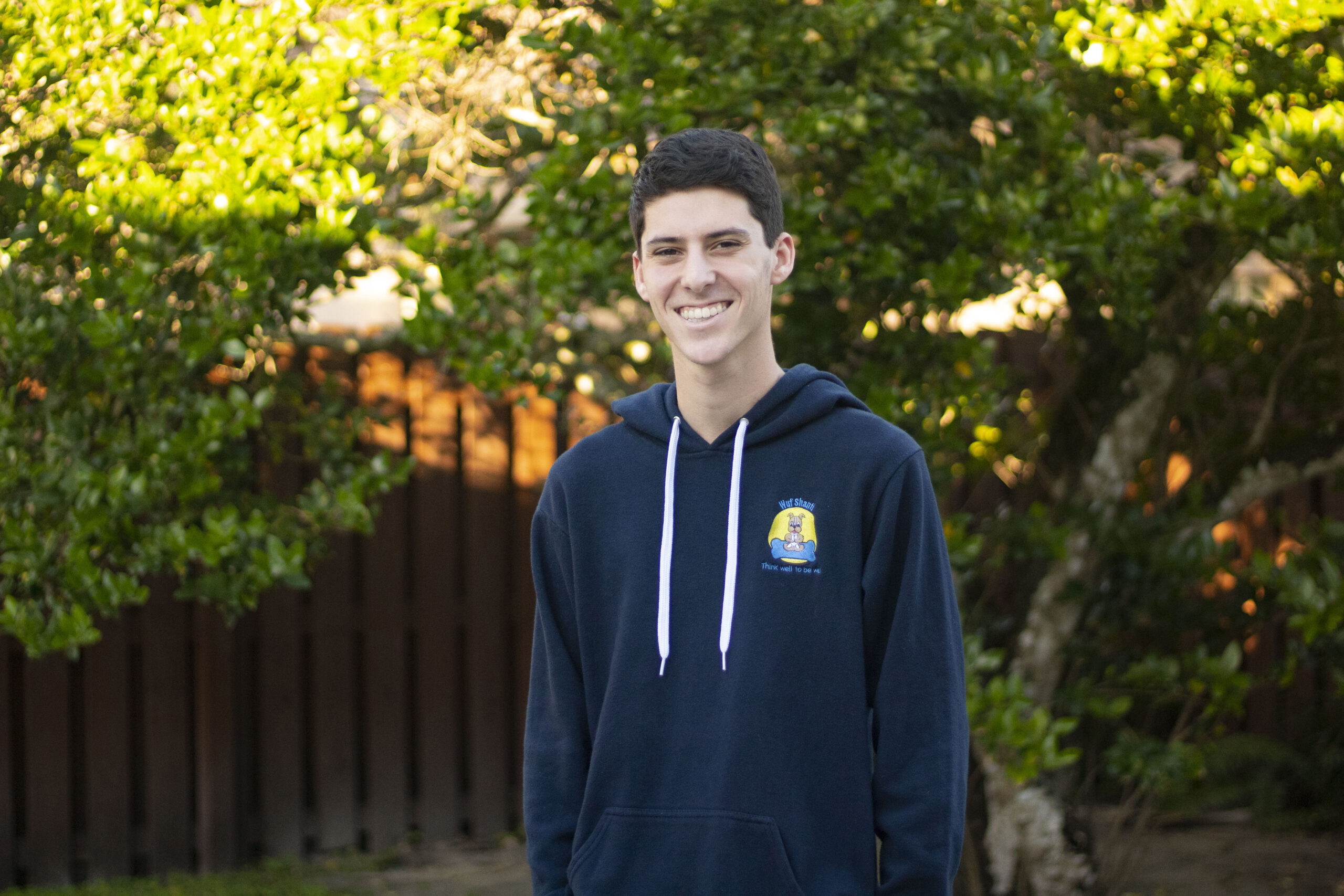I’ve always said that I’m a normal teen, even when people say how mindful I am. Yes, I know how to control my stress, but sometimes it’s hard even for me.
This has been a rough year. My grandpa died from cancer, we’ve been stuck in the house for a year because of Covid, my great-grandma died from Covid, I joined a vaccine study for teens and I don’t know if I got the placebo, and of course I still have all the old stressors of school work, grades, extracurricular activities, studying for the SAT, getting into college, working on Wuf Shanti (as I write this, we are doing an evidenced based study on our curriculum, I just finished writing a mindfulness book for teens and am having it reviewed by an editor, and I am recording audio meditations and videos for Inner Explorer and Stressed Teens).
It’s a lot, I know, but I didn’t really think I was stressed. I mean, I didn’t feel stressed, or maybe I wasn’t aware that I was stressed. It’s funny because I’m a mental health advocate and it turns out that I was unknowingly experiencing huge levels of anxiety. How did I figure it out?
When I went to get the first vaccine shot for the study, I felt totally fine, not stressed or nervous at all….BUT my blood pressure was so sky high that they told me it was almost stroke level! What?! I laughed. Honestly, I thought their machines were broken, even though they took my blood pressure four times and it repeatedly said the same thing. The nurse kept asking me if I was nervous, and I kept replying no, which was totally true… in my mind. My body was telling me another story. My subconscious mind was obviously very anxious. After the vaccine shot was given, and they took my vitals an hour later, my blood pressure was normal.
This is the moment I realized that maybe I’m not as self-aware as I thought I was, because if I don’t even know when I’m stressed, then how can I control it? More than 6,000 scientific studies have been done showing the benefits of mindfulness, and many of them focus on physical effects, such as lowering blood pressure. So, we know mindfulness helps. But as we know from the SEL studies, self-awareness is an important precursor, because if I don’t know that I’m stressed to the point of having a stroke, then I won’t know to do a mindfulness practice that may be able to calm me.
That was last week. Now, contrast that experience with today, the first time I ever took the SAT. Wow, did I feel stressed! I KNEW that I was feeling super anxious. I decided to take my blood pressure with a cuff we had at home, expecting the same high levels from the week before when I was at the vaccine study. I was shocked that the blood pressure was normal! I took it again because again I thought the machine was broken, in the opposite way this time! And again, I got a normal result. All three times.
What does this tell us? That when I feel stressed, my blood pressure is fine, and when I don’t feel stressed, my blood pressure is sky high? That I have to do a better job working on my self-awareness and figuring out what my subconscious is up to? That our bodies can give us clues if we learn to listen? Here’s a big one… that maybe I have to remember to practice what I preach, meaning like on a daily basis! Sometimes I get too busy and I forget my mindfulness practice for the day, and sometimes if I’m feeling great, I won’t feel the need to do a mindful practice. Yet, I tell everyone else that they should try practicing for at least five minutes every day. I used to, so why did I stop? Did I think I was immune to the effects of stress? Well, apparently, I am not. Did I think that I was adept at always recognizing my stress levels? Yup, I did.
I guess this is a good lesson, or a good reminder for me. Last night, before I went to sleep around midnight, I forced myself to do a gratitude practice, a heartfulness practice, and a chakra practice. It literally took me ten minutes from start to finish, maybe less, to be thankful, surround myself in light, and send kindness to myself and others.
I was reminded of how crucial it is to do our own practice(s) when I sent out a newsletter to my Board of Advisors, mentors, and guides, many of which are in the same industry, and I was grateful how many people wrote me back and said the same thing: They all go through bouts of anxiety and stress, and it’s normal. As mental health advocates, we are not perfect ourselves. Yes, we understand the importance of self-care, but we also need to remember to make our own mental (and physical) health a priority and send ourselves compassion. We have to take time for ourselves to relax and be in a calm space, and practice what we preach so that we can continue to be a leader in this field and help others.
For me, right now, I think this means going back to the 5 minute rule, even when I’m busy or feeling totally fine. Starting now. Again. Remember, every moment is a new opportunity to begin again. And even the most mindful of us have to take a deep breath and begin again. I’m filled with gratitude that I have that opportunity.

